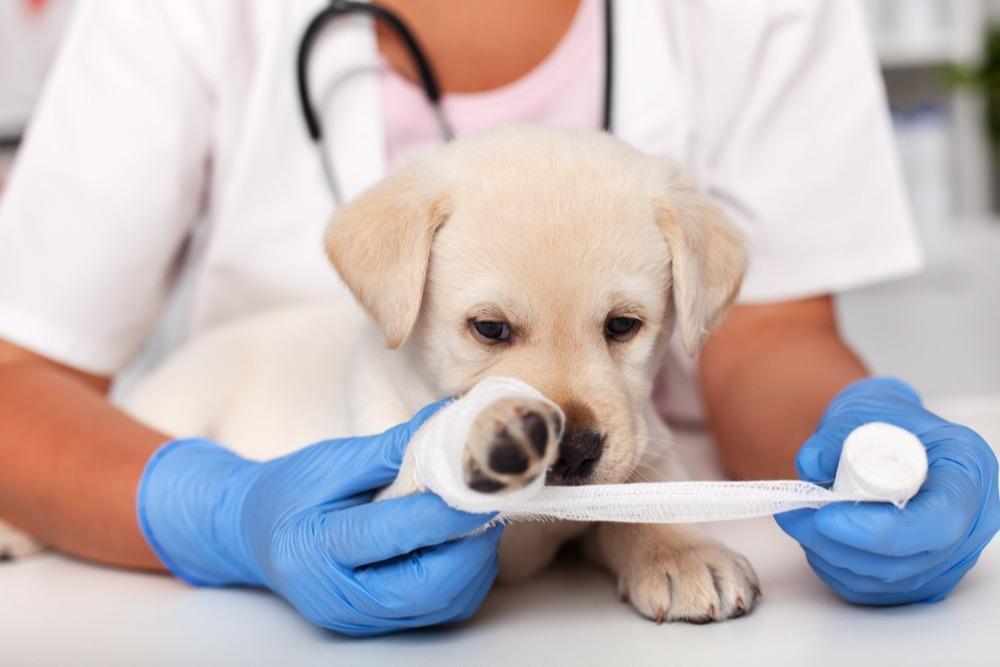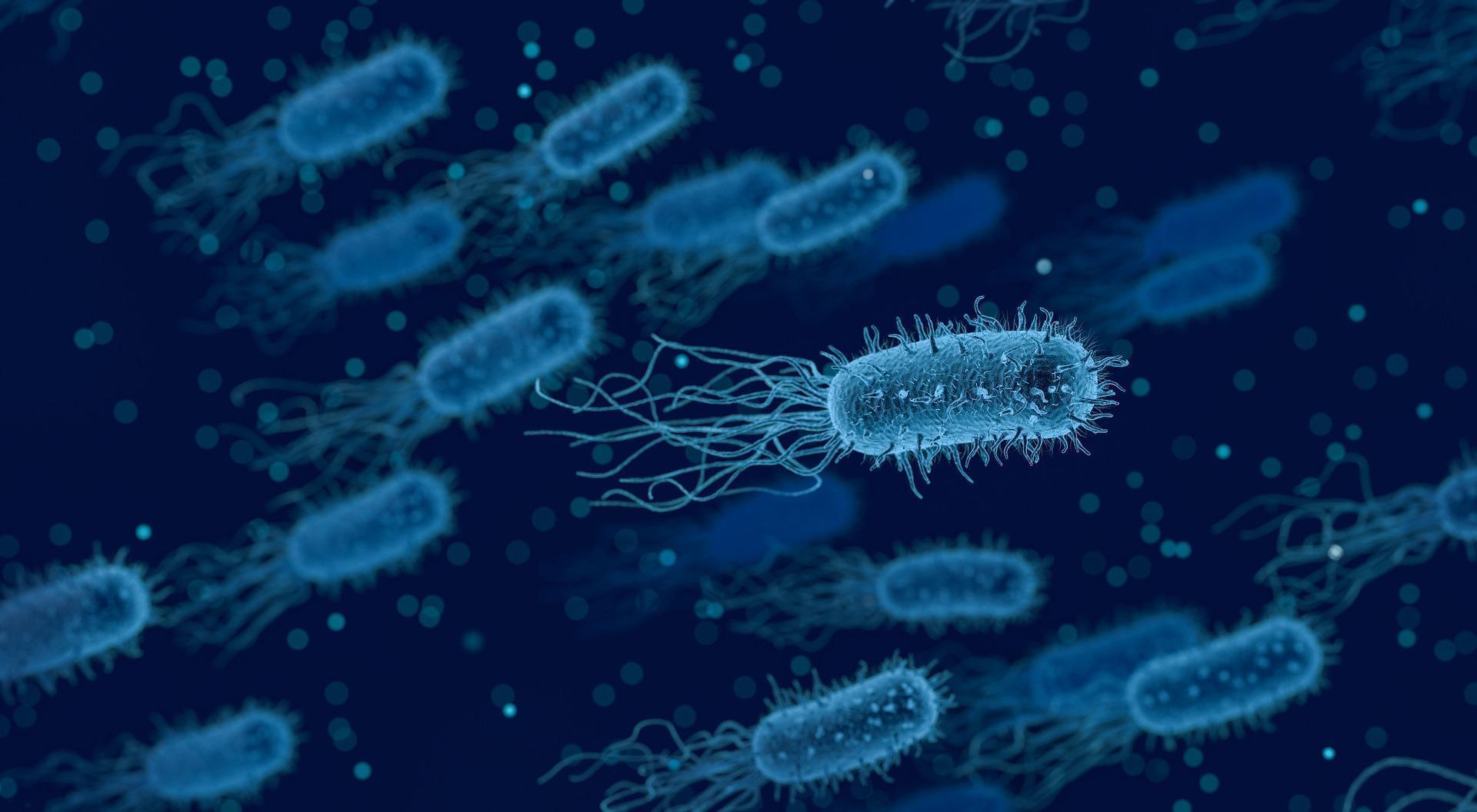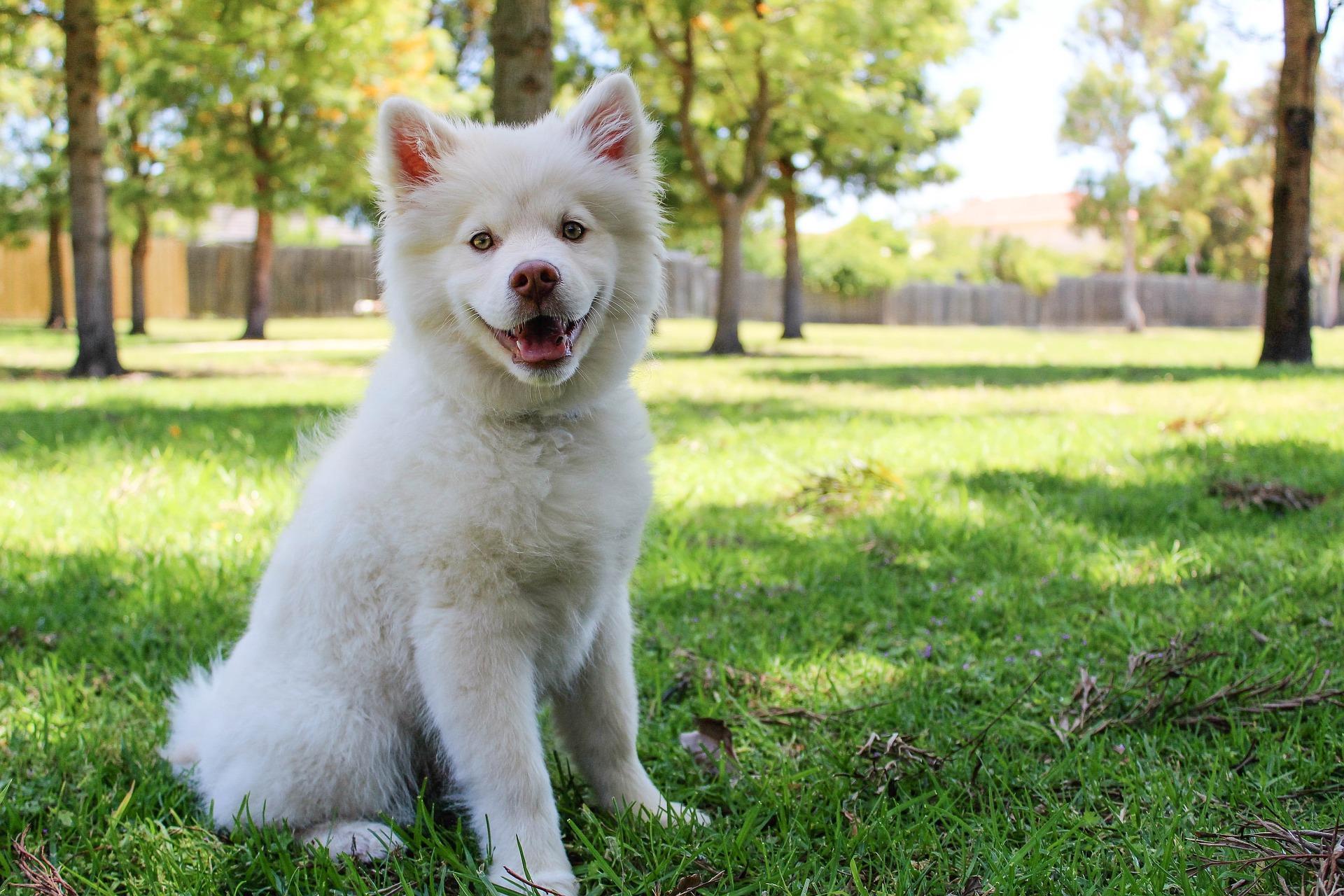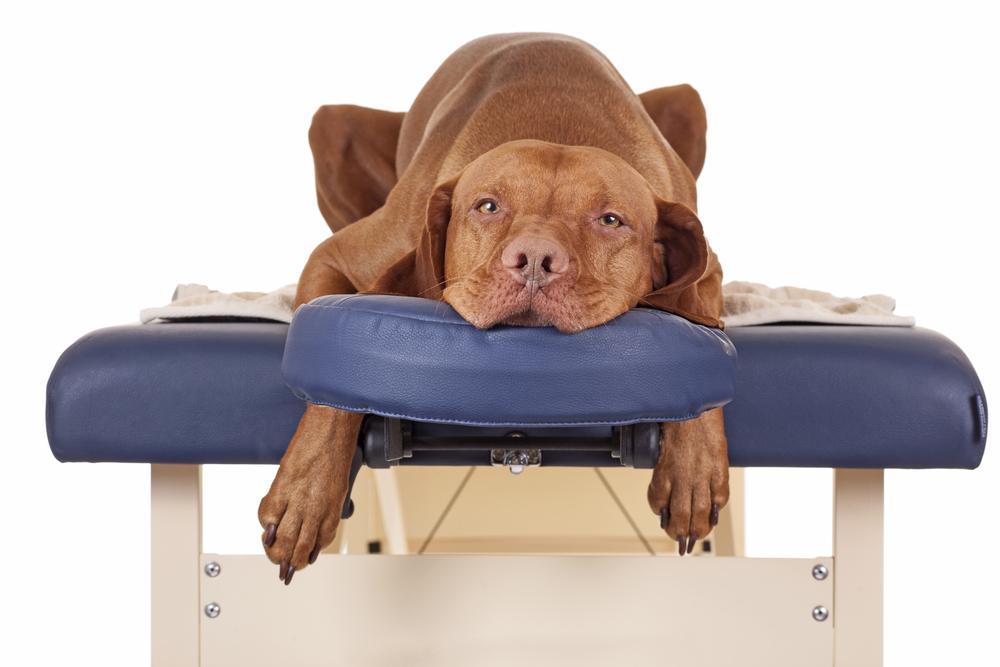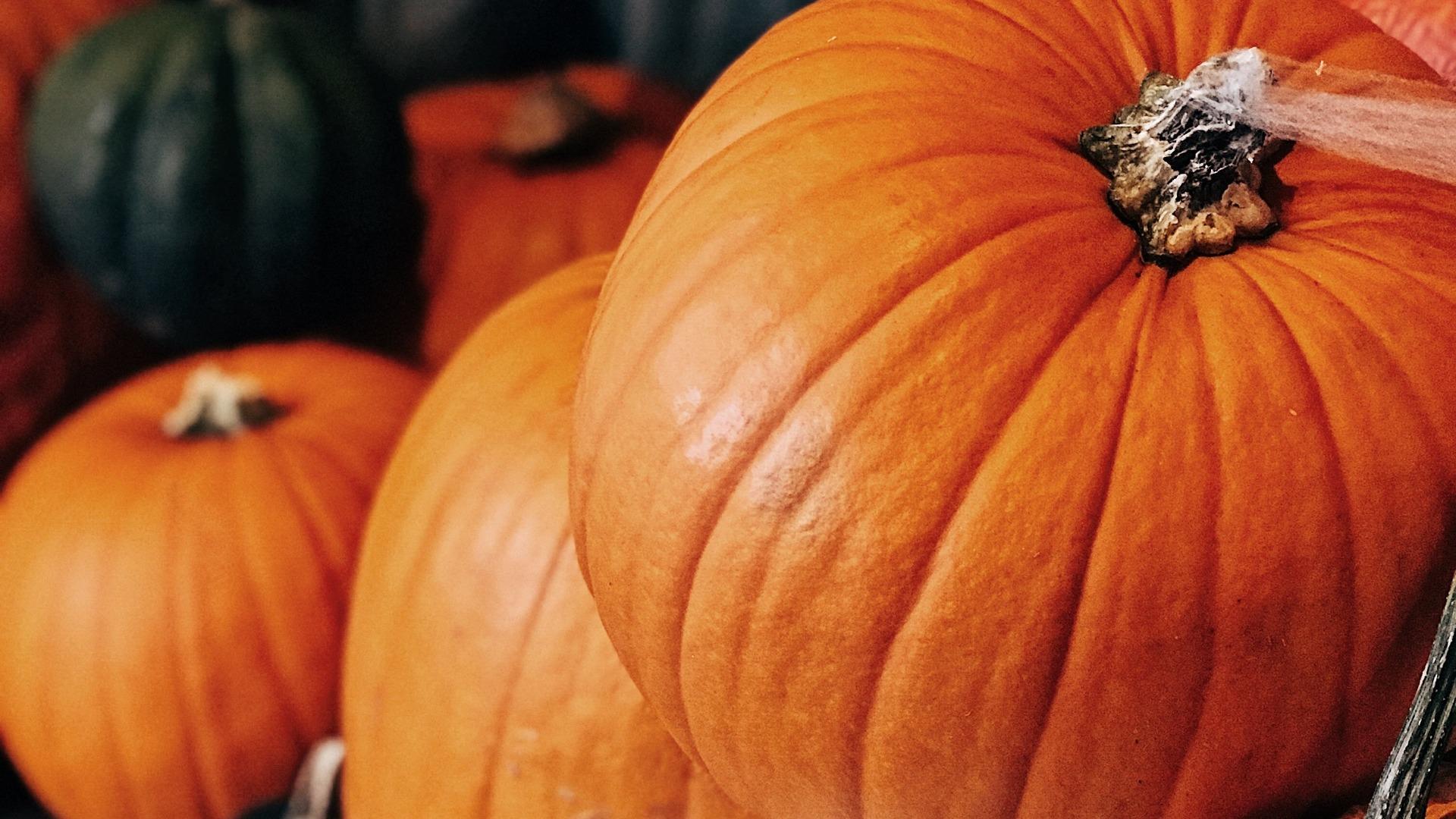
Your dog may have recently undergone surgery or sadly suffered an injury when out on a walk. We know the importance of rest for healing, but if there is trauma to the skin in the form of a wound, can we support that process?
Let’s take a look.
Wound healing, as a normal biological process in the body, is achieved through four precisely and highly programmed phases: hemostasis, inflammation, proliferation, and remodelling.
For a wound to heal successfully, all four phases must occur in the proper sequence and time frame.
Hemostasis consists of vascular constriction, platelet aggregation, degranulation and fibrin clot formation.
When tissue damage results in bleeding, fibrinogen is converted at the wound into fibrin by the action of thrombin, a clotting enzyme. Fibrin molecules then combine to form long fibrin threads that entangle platelets, building up a spongy mass that gradually hardens and contracts to form the blood clot.
During inflammation there is neutrophil infiltration, monocyte infiltration and differentiation to macrophage and lymphocyte infiltration.
Proliferation consists of re-epithelialization (formation of new epithelial and skin appendages), angiogenesis (formation of new blood vessels), collagen synthesis and ECM (extracellular matrix) formation.
During remodelling, there is collagen remodelling and vascular maturation and regression.
Wounds that exhibit impaired healing, including delayed acute wounds and chronic wounds have generally failed to progress through the normal stages of healing. These wounds frequently enter a state of pathologic inflammation due to a postponed, incomplete, or uncoordinated healing process.
Oxygen is important for cell metabolism, especially energy production by means of ATP, and is critical for nearly all wound-healing processes. It:
In wounds where oxygenation is not restored, healing is impaired.
Infection, not surprisingly, also influences wound healing.
Many clinical and animal studies at the cellular and molecular level have examined age-related changes and delays in wound healing. It is commonly recognized that, in healthy older bodies, the effect of ageing causes a temporal delay in wound healing, but not an actual impairment in terms of the quality of healing.
Interestingly, exercise has been reported to improve cutaneous wound healing in older humans as well as aged mice, and the improvement is associated with decreased levels of pro-inflammatory cytokines in the wound tissue.
Studies in both humans and animals have demonstrated that psychological stress causes a substantial delay in wound healing.
Caregivers of persons with Alzheimer’s and students undergoing academic stress during examinations demonstrated delayed wound healing.
Many medications, such as those which interfere with clot formation or platelet function, or inflammatory responses and cell proliferation have the capacity to affect wound healing.
Systemic glucocorticoids (GC), which are frequently used as anti-inflammatory agents, are well-known to inhibit wound repair via global anti-inflammatory effects and suppression of cellular wound responses, including fibroblast proliferation and collagen synthesis.
In animal models, systemic use of ibuprofen (NSAID) has demonstrated an anti-proliferative effect on wound healing, resulting in decreased numbers of fibroblasts, weakened breaking strength, reduced wound contraction and delayed epithelialization.
An increased frequency of wound complications has been reported for obese human individuals undergoing surgery.
Recent findings have documented that adipose tissue secretes a large variety of bioactive substances that are collectively named adipokines.
Both adipocytes themselves as well as macrophages inside the adipose tissue are known to produce bioactive molecules including cytokines, chemokines, and hormone-like factors such as leptin, adiponectin, and resistin. Adipokines have a profound impact on the immune and inflammatory response.
Not only this but in obese individuals, there is increased pressure on the wound, decreased vascularity in adipose tissue and additional skin folds which may harbour infectious pathogens.
Glucose is the major source of fuel used to create the cellular ATP that provides energy for angiogenesis and deposition of the new tissues – to this end, there may be an argument for easily digested carbohydrates in the recovering dog.
Protein is one of the most important nutrient factors affecting wound healing.
A deficiency of protein can impair capillary formation, fibroblast proliferation, proteoglycan synthesis, collagen synthesis, and wound remodelling.
A lack of protein also influences immune system function, with resultant decreased leukocyte phagocytosis and increased susceptibility to infection.
Not only this, but collagen is the major protein of connective tissue. Collagen synthesis requires hydroxylation of lysine and proline, and co-factors such as iron and vitamin C.
Glutamine is a major source of metabolic energy for rapidly proliferating cells such as fibroblasts, lymphocytes, epithelial cells, and macrophages. To this end, it is important for wound healing.
Essential fatty acids are thought to affect pro-inflammatory cytokine production, cell metabolism, gene expression, and angiogenesis in wound sites, suggesting an important role in wound healing.
To learn more about these nutrients, check out the following blogs:
The Importance of Iron in Pet Health
Why Is Zinc Important for Your Dog?
Why Is Magnesium So Important To Your Pet?
Why Does My Dog Need Vitamins?
Top Tips To Support Wound Healing:
If you are supporting a dog through a healing journey and would like some guidance, then please check out our services to see how we can help.
Thanks for reading,
MPN Team

